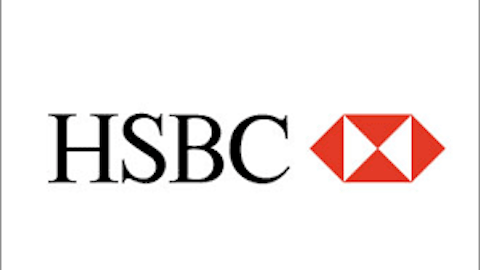I know what you are thinking, and believe me, I find it hard to believe as well. However, I’ve been following many banks for a while, and I believe there is an argument to be made that Capital One Financial Corp (NYSE:COF) has the potential to be one of the best investments of the bunch. The fact that I didn’t really start following Capital One Financial Corp (NYSE:COF) until last year might be why I can see the forest for the trees. Truth be told, this company is changing right before investors eyes, but the problems of the past are holding the stock back.
A different kind of hybrid
There is a lot of talk about hybrid vehicles, but Capital One Financial Corp (NYSE:COF) is the only hybrid bank that I know of. The company operates like a traditional bank, offering deposits and loans, but also generates a tremendous amount of revenue from their credit card division. What’s amazing is, though credit cards are supposed to have a higher charge off rate than other loans, Capital One Financial Corp (NYSE:COF) does a good job of managing this credit risk.
In fact, one of the best reasons to consider buying Capital One Financial Corp (NYSE:COF) has to do with their credit quality. If we compare the company’s credit card portfolio, their charge off rate of 2.2% is actually tied with American Express Company (NYSE:AXP), and comes in lower than Discover Financial Services (NYSE:DFS) at 2.36%. If we compare the company’s non-performing loans to traditional banks like Bank of America Corp (NYSE:BAC) or JPMorgan Chase & Co. (NYSE:JPM), the difference is even more stark.
In the most recent quarter, Capital One Financial Corp (NYSE:COF)’s highest non-performing loan rate was just 0.74% from their consumer loans division. By comparison, Bank of America Corp (NYSE:BAC) reported non-performers of 2.53%, and J.P. Morgan’s non-performing percentage was 1.6%. As you can see, Capital One is managing their credit risk quite well.
Cheap and growing
There should be little question that Capital One’s acquisition strategy is paying off in a big way when it comes to loan and deposit growth. While Bank of America and JPMorgan Chase & Co. (NYSE:JPM) reported total deposits up 4.4% and 7% respectively, Capital One grew their deposits by 24.25%. By comparison, American Express Company (NYSE:AXP) and Discover Financial Services (NYSE:DFS) couldn’t match, reporting deposit growth of just 2.5% and 0%.
On the loan side of the house, the company reported equally impressive growth. In fact, I would argue that Capital One likely stole some business from at least Bank of America and American Express Company (NYSE:AXP). In Bank of America’s current quarter, they reported total loans declined by 0.82%, and American Express Company (NYSE:AXP) saw a decline of 4.69% in their loan portfolio. Though Discover reported credit card loans up 5%, and J.P. Morgan reported loans up 1%, Capital One trounced them all with loan growth of 28.19%.
If you want another reason to consider Capital One, just look at their book value versus the current stock price. If you are looking for a cheap book value trade, look away from American Express Company (NYSE:AXP) and Discover. American Express Company (NYSE:AXP) currently trades for about 330% of book value, and Discover changes hands at about 130% of book. J.P. Morgan is a slightly better value at about 112% of book value, but Capital One is an ever better value at about 99% of book value. The only peer with a cheaper book value is Bank of America at about 65% of book. The difference of course is, Capital One has much better credit quality and growth than Bank of America, and better growth than American Express or Discover.
Investors should be asking this question
In the same way that Capital One is sort of a hybrid credit card company and bank, their net interest margin reflects this combination as well. Last quarter, American Express and Discover reported net interest margins of about 9.5%. By comparison, Bank of America and J.P. Morgan reported net interest margins of about 2.4%. Capital One gives investors a hybrid of the two, with a net interest margin of 6.71%.
The company’s higher margin means they theoretically would benefit more from additional deposits than their lower margin bank counterparts. However, the diversity of their portfolio means they are more insulated from credit card issues than American Express or Discover.
Capital One’s higher margin business combined with the company’s excellent credit quality should spell earnings growth that could exceed analysts’ estimates. If the company can leverage their new deposits from their ING acquisition, and their new loan balances from the HSBC purchase, Capital One might be the best bank to have in your portfolio. The company that’s asking “what’s in your wallet” should have investors asking, why isn’t this in my portfolio?
The article What’s in Your Portfolio? originally appeared on Fool.com.
Chad Henage has no position in any stocks mentioned. The Motley Fool recommends American Express. The Motley Fool owns shares of Bank of America and JPMorgan Chase & Co (NYSE:JPM). Chad is a member of The Motley Fool Blog Network — entries represent the personal opinion of the blogger and are not formally edited.
Copyright © 1995 – 2013 The Motley Fool, LLC. All rights reserved. The Motley Fool has a disclosure policy.





